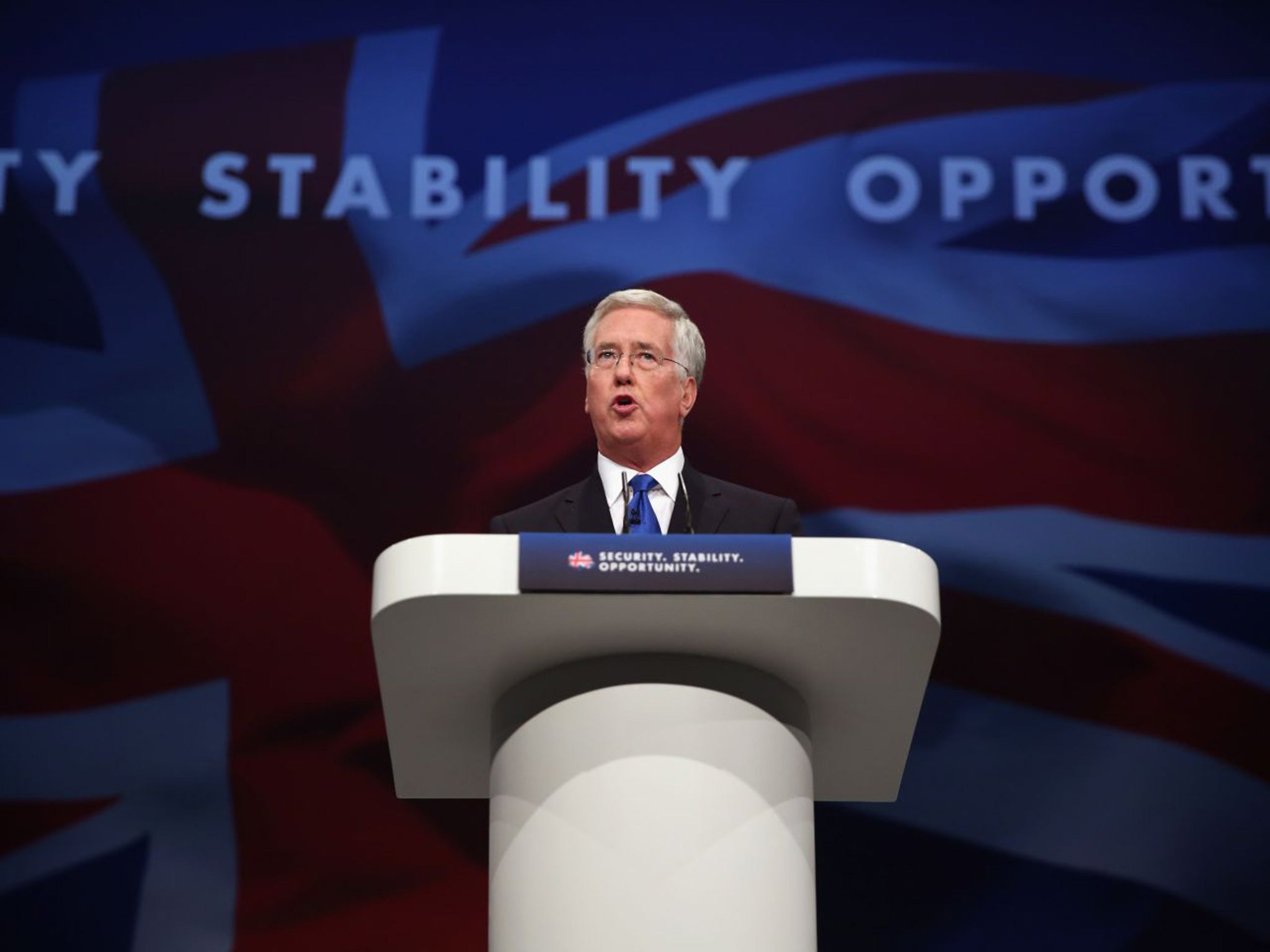It would be nice if the Tories could stop scaring the hell out of us to get support for air strikes in Syria
“The threat to the UK is extremely high,” Fallon said last week, as we quivered on our sofas. “It could be London, it could be Manchester, it could be Glasgow… An attack is highly likely so we have to respond.”


On 16th November, the Prime Minster shared the news that seven terrorist plots had been foiled in Britain in the last year. And today, the Defence Secretary Michael Fallon told MPs that attacks around the world inspired or directed by Isis have increased tenfold from last year. How frightening these announcements are – and how conveniently timed.
Coincidentally, today the cabinet has approved a 12-point motion, paving the way for Britain to become more involved in airstrikes against Isis targets. At least 20 cabinet ministers supported the extension of RAF airstrikes.
Forgive me if, considering what’s happening in parliament, I approach Tory statements about the danger we’re in and the bad guys trying to get us with cynicism. It’s hardly a secret that David Cameron has made his own mind up about bombing northern Syria – so why not engage in a bit of scaremongering to bolster support? If the public panic, and if they are fired up with the notion that something simply must be done, then it makes it all the easier.
Cameron and Fallon didn’t choose to make the public aware of the number of terror plots foiled or the increase in Isis attacks before it was politically advantageous to their party, despite the time frame of a full 12 months. And though it’s true that they’ve spoken about the threat from Isis before, the steady drip-feed of how much danger we’re in from threatening baddies encroaching upon our doorstep seems to have recently turned into an avalanche.
“The threat to the UK is extremely high,” Fallon said last week, as we quivered on our sofas. “It could be London, it could be Manchester, it could be Glasgow… An attack is highly likely so we have to respond.”
Supported by the overwhelmingly partisan coverage of the majority of the tabloid press, the Tories are well aware that throwing out a few well-timed statistics will have us all running scared. Unsurprisingly, the Paris attacks have also lent legitimacy to the government’s Investigatory Powers Bill, the so-called ‘Snoopers Charter’, that would see our civil liberties eroded in the name of counter terrorism measures.
The question of whether we should extend British air strikes in Syria and Iraq is incredibly important, and we all have a stake in it. The current government has a responsibility to treat us as adults, and provide us with the information we need to form intelligent, considered opinions on the issue. They shouldn’t be merely feeding us titbits of information to further their own agenda. When it’s life or death, we can’t afford to allow ourselves to be manipulated.
Increasingly, the rhetoric has demanded that ‘if you’re against Isis, then you must support the bombing of Syria’. But I’m more interested in finding out what drives young people to join Isis than bombing the bejesus out of Syria, a strategy that it’s been pointed out would only act as a ‘good recruiting sergeant’ for Islamic State. There is a difference between tackling terrorists and tackling terrorism.
Countering extremist propaganda, striving for better integration of immigrant communities, and recognising the ‘importance of religious knowledge as armour against radicalisation’ are all strategies worth considering in the fight against Isis; they have the advantage of not requiring bloodshed, and they have much better track records than bombing in the bringing about of peace.
It’s essential that we learn from the 2003 invasion of Iraq, the subsequent years of death and destabilisation in the region, and the messy conclusion where no clear outcome or achievement could be identified.
Conflict is on the horizon, but it doesn’t have to be. We don’t have to allow ourselves to be swayed by fear-mongering – even if that’s what the politicians want.
Join our commenting forum
Join thought-provoking conversations, follow other Independent readers and see their replies
Comments
Bookmark popover
Removed from bookmarks